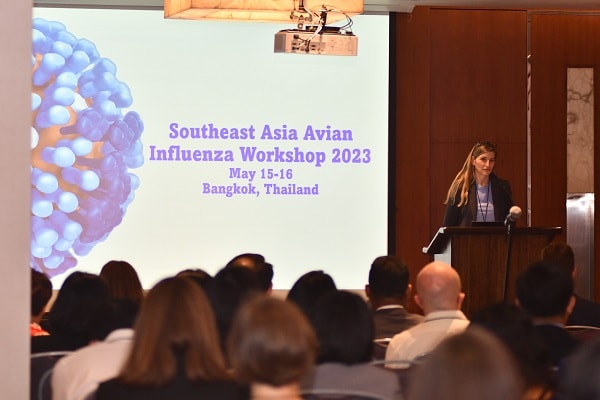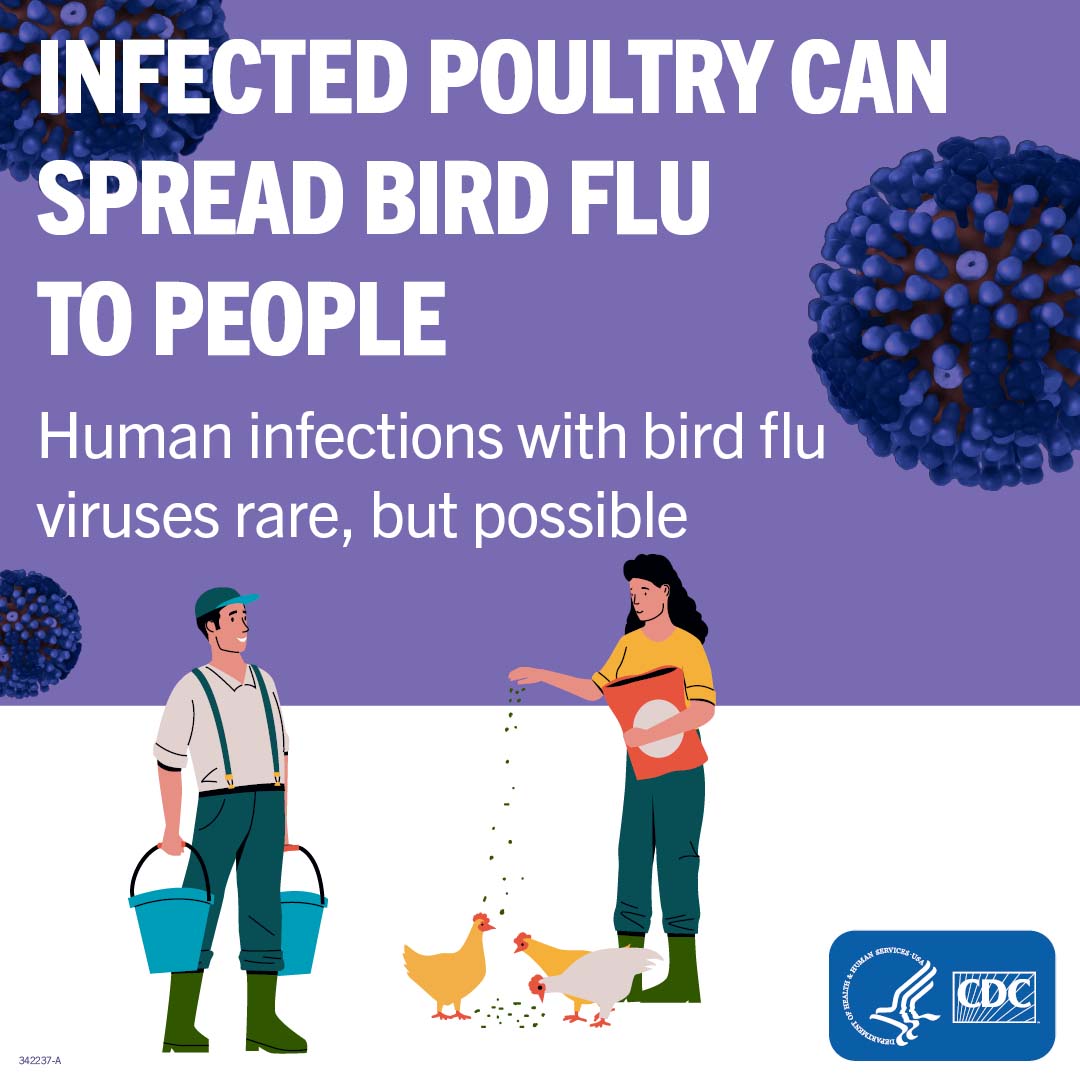CDC and Representatives from Across Southeast Asia Meet in Bangkok for Workshop on Avian Influenza
Updated May 16, 2023
This week, CDC staff will be convening with leaders from animal and human health sectors across Southeast Asia to hone avian influenza (bird flu) preparedness in the region. The main purpose of this workshop is to share best practices in epidemiologic and laboratory surveillance for bird flu and to improve data-sharing to strengthen the region’s ability to respond to bird flu pandemic threats.

CDC Influenza Division Director, Dr. Vivien Dugan speaking at the Avian Influenza Workshop in Bangkok
This workshop takes place amid ongoing global outbreaks of highly pathogenic avian influenza A H5 virus among wild birds and poultry, with sporadic spillover events in mammals and rare human infections. The most prolific of these viruses are H5N1 viruses from clade 2.3.4.4b. Since these began circulating globally in 2022, nine human infections have been reported, including two in China, and one in Vietnam. Additionally, two human H5N1 infections were recently reported in Cambodia from clade 2.3.2.1c, a clade circulating in birds in the region, but human infections had not been reported in that country since 2014.
CDC has long supported avian influenza surveillance and prevention in Asia. The first global detections of avian influenza A (H5N1) virus were reported in waterfowl in China in 1996. The virus later began to circulate more widely in the region and caused widespread disease in waterfowl and several human infections and deaths. These human infections and deaths raised concern that the virus could potentially continue to mutate and cause a global human pandemic. As a result, in 2006, CDC increased financial support to countries and the number of flu experts across the globe, with particular focus in Southeast Asia. CDC has continued to support flu surveillance in the region, providing financial and technical assistance, as well as maintaining regional hubs, including several in Asia.
In many countries in the region, particularly in rural areas, people often rely on poultry and other animals for food and income. These animals typically live intermingled and in very close proximity to their human owners. This proximity raises the possibility of influenza viruses spreading between animals and people, highlighting the importance of prioritizing bird flu surveillance and response in the region.
Workshop attendees will look to build on existing efforts to address the ongoing threat of H5 and set region-specific priorities. Further, this workshop will help to elevate the importance of bird influenza preparedness activities among the countries involved by bringing awareness to bird flu and discussing actionable steps for key stakeholders in the region.
This workshop is organized by CDC and co-hosted by the Thailand Ministry of Public Health and will include representation from members of the World Health Organization (WHO), the Food and Agriculture Organization of the United Nations (FAO), and the World Organisation for Animal Health (WOAH), as well as key decision makers from Ministries of Health and Ministries from animal and environmental health sectors from countries across Southeast Asia.
Human infections have been rare, however specific groups of people who are at higher risk due to their exposure to poultry, including poultry owners, poultry workers, people responding to poultry outbreaks, and those who handle or process chickens should take additional precautions around birds. CDC will continue to provide updates to the current situation as needed.
